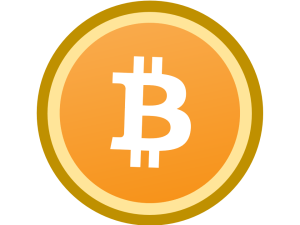Satoshi Nakamoto, the inventor of bitcoin, titled his original white paper on the subject “A Peer-to-Peer Electronic Cash System.” This description touches on the core differences between bitcoin and credit card transactions.
Bitcoin payments are analogous to a wire transfer or cash transaction, where payment is ‘pushed’ directly from one party to another, without going through another financial institution. Payment processing is executed through a private network of computers, and each transaction is recorded in a blockchain, which is public. Bitcoin is based on peer-to-peer technology and relies on the blockchain and the cryptography securing it, without any third party oversight.
By contrast, credit card transactions entail the buyer effectively authorizing the seller to ‘pull’ a payment from their account, passing through several financial intermediaries in the process. For example, a typical Visa transaction involves four parties: the merchant, the acquirer (the financial institution that enables payments to the merchant), the issuer (the card holder’s bank), and the individual cardholder.
When making a bitcoin transaction, it is not necessary to provide personal identification information such as your name and address. Bitcoin transactions are made using an anonymous alphanumeric address that change with every transaction and a private key. Payments can also be made on mobile devices by using quick response (QR) codes.
While credits cards are stored physically in a wallet, bitcoin transactions are sent to and from electronic wallets, which can be stored on your computer, smartphone, or in the cloud.
Bitcoin transactions are irreversible and can only refunded by the receiving party — a key difference from credit card transactions that can be canceled. This means there are no charge-backs for merchants when taking payment via bitcoin. A charge-back is the demand by a credit-card provider for a retailer to cover the loss on a fraudulent or disputed transaction.
Bitcoin merchants also save on credit card fees that can range anywhere from 0.5% to 5%, plus 20 to 30 cents for each transaction made. Bitcoin payments can be sent and received at a very low cost or none at all, as bitcoin fees are based on the amount of data sent.
For merchants, the advantages of receiving bitcoin are obvious. Payments made using the virtual currency save substantially on processing fees and eliminate the risk of charge-backs. For shoppers the advantages of paying with bitcoin include greater simplicity in placing the transaction, user anonymity, no interruptions from intermediaries (for example your account being frozen as a result of a fraud alert), and very low transaction fees.
Credit cards offer important beneficial features such as the ability to borrow money, protection against fraud, reward points, and vastly wider acceptance among merchants. While a few major retailers, including Overstock.com (OSTK), Dell, and Etsy, have started to accept bitcoin, most have yet to make it a payment option. However, using credit cards carries the risk of incurring late fees, interest charges, foreign transaction fees, and potentially adverse effects on your credit score.
The Bottom Line
Ultimately, bitcoin resembles cash as much as it does credit cards. The virtual currency aims to combine the advantages of direct cash transactions with the power of digital technology.
Click on the bitcoin logo below to buy, use or accept bitcoin. Unocoin is India’s most popular bitcoin wallet.
To read the bitcoin white paper, visit: https://bitcoin.org/bitcoin.pdf








